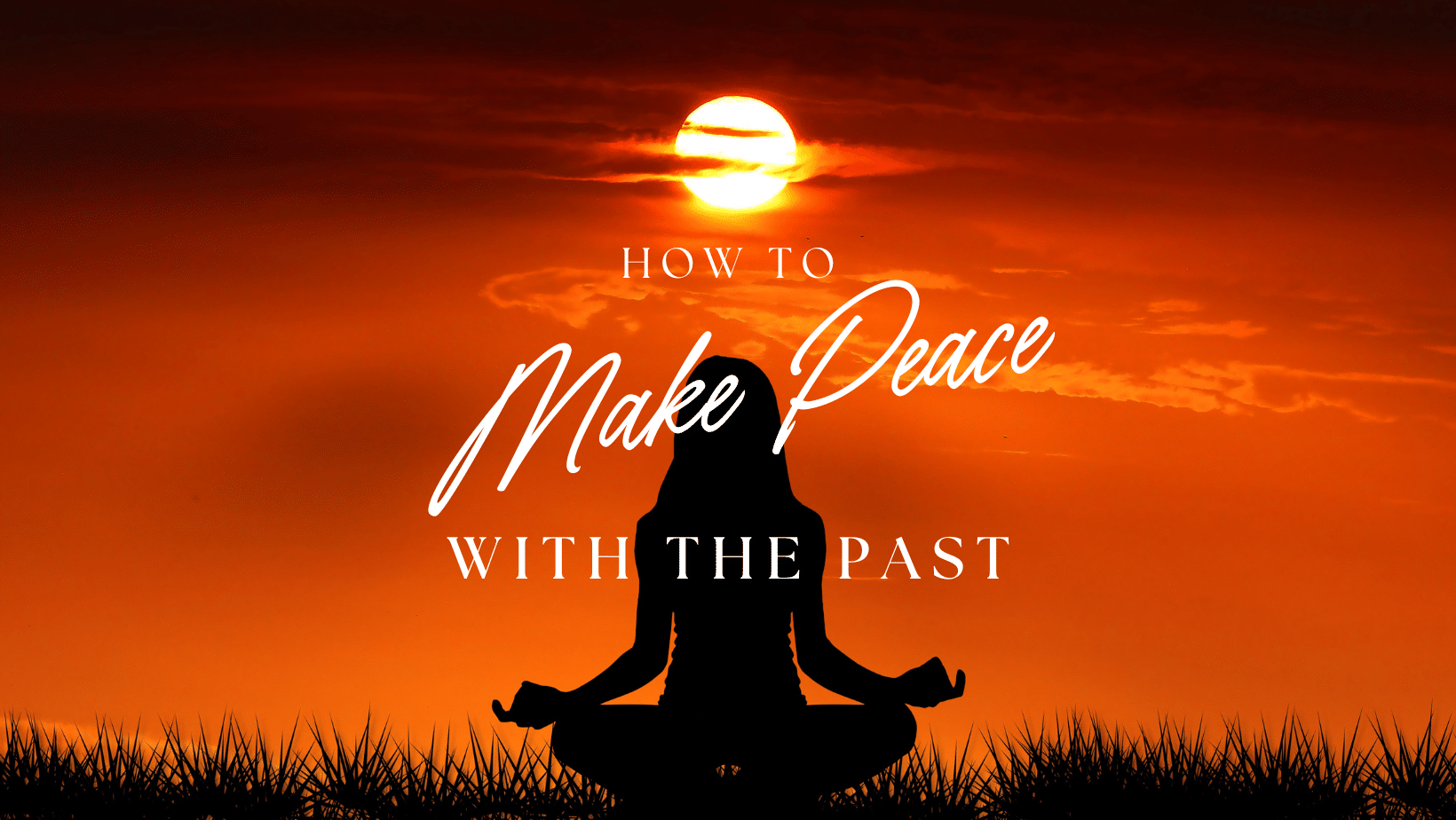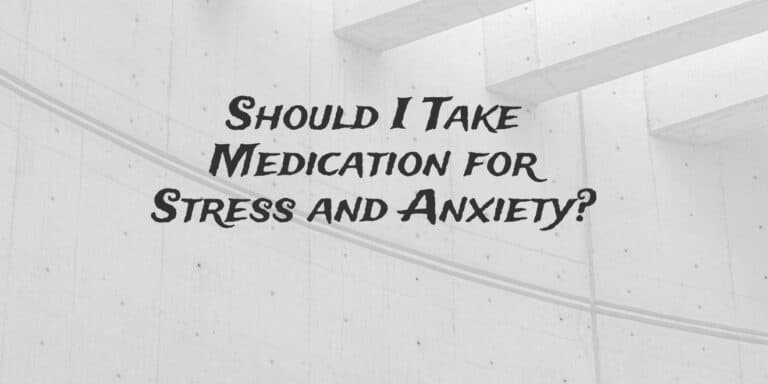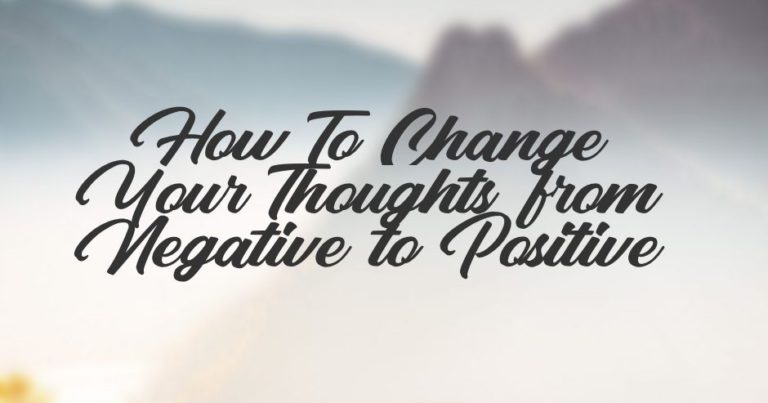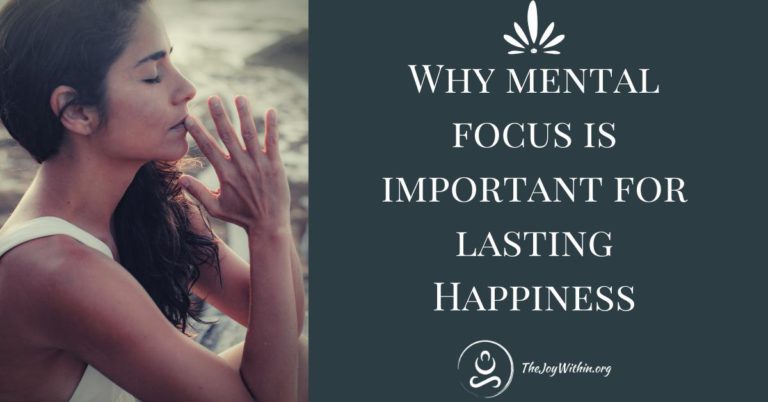In the hustle and bustle of our daily lives, our past often creeps up on us, casting long shadows of regret, guilt, or anxiety. It’s not uncommon to find ourselves dwelling on past mistakes or missed opportunities, leading to negative thoughts that weigh us down. However, finding peace with your past is not an impossible task.
In this post, we’ll take a look at what it means to make peace with your past, and provide a few simple tips you can use to let go and move on.
Related Post (With Podcast): How To Be At Peace With Yourself
What Does It Mean To Be At Peace With The Past?
During our normal daily lives, we’re often so preoccupied with the present and the future that we forget the profound impact our past has on our well-being and happiness. So, what does it mean to be at peace with your past?
First and foremost, it’s about acceptance.
Acceptance means acknowledging that your past is an integral part of who you are today, regardless of what has happened to you, or the actions you might refret.
Every step of your journey has helped to bring you to exactly where you are today. it’s shaped you into the person you’ve become. Embracing your past means recognizing that every experience, both good and bad, has contributed to your personal growth.
For a lot of us, making peace with the past also means learning how to forgive – both ourselves and others. When we do not forgive the past, we unconsciously create resistance to it. We build up mental blocks and regrets, which keep us attached to the negative experience we want to let go.
True peace comes when you let go of these burdens and release the negative emotions that tether you to the past.
This does not mean you have to “like” everything that has happened. Forgiveness and acceptance does not mean you condone a negative action or outcome. It simply means that you refuse to bring that past negativity forward into the present.
That’s the foundation of learning how to move on.
How Do You Make Peace With Regret?
One of the biggest challenges to becoming at peace with the past revolves around the actions we regret. It’s important to understand that everyone has regrets, and learning how to live with (and even embrace) those regrets is an important part of our personal and spiritual development.
Making peace with regret can be a deeply personal and transformative process.
You can:
- Acknowledge Your Regret: The first step is to acknowledge and accept your regret. Avoiding or denying it can lead to prolonged suffering. Face it head-on and admit to yourself that you have regrets.
- Understand the Lessons: Regret often carries valuable lessons. Reflect on what you’ve learned from your past mistakes or choices. How have they contributed to your personal growth and wisdom? Embrace these lessons as part of your journey.
- Practice Self-Compassion: Be kind and forgiving towards yourself. Remember that everyone makes mistakes, and they are opportunities for growth. Self-criticism can only prolong your regret.
- Apologize and Make Amends: If your regret involves actions that have hurt others, consider apologizing and making amends if possible. Taking responsibility for your actions and showing remorse can help you find closure.
- Focus on the Present and Future: While it’s essential to learn from the past, dwelling on regret can hinder your present and future. Redirect your energy toward positive actions and choices in the here and now. Learn more about focusing on the present moment.
- Practice Mindfulness: Mindfulness techniques can help you stay in the present moment and reduce rumination on past regrets. Meditation and mindfulness exercises can be powerful tools for finding inner peace. Try these easy mindfulness exercises to get started.
As you move forward with this process, you will engage with a deeper sense of self-compassion, learning, and a focus on the present and future.
By embracing your regrets as part of your life journey and using them as opportunities for growth, you can find inner peace and move forward with a sense of acceptance.
How Do You Make Peace With Past Trauma or Harmful Actions?
Another challenging area for many people revolves around how to live with past trauma or other harmful actions that may have happened. This can be incredibly difficult, as we often feel that someone has wronged us, or that the situation shouldn’t have happened.
It’s easy to feel out of control, and unable to move on. Past trauma can cast a long shadow over our lives, but it doesn’t have to define our future.
Here’s a roadmap to help you on your path to healing and serenity:
- Acknowledge Your Trauma: The first step in healing is acknowledging that you’ve experienced trauma. Denying or minimizing its impact can perpetuate your suffering.
- Seek Professional Help: Consider reaching out to a therapist or counselor who specializes in trauma. They can provide guidance, support, and therapeutic techniques to help you process and heal from your past experiences.
- Practice Self-Compassion: Be kind and patient with yourself. Trauma recovery is not linear, and healing takes time. Understand that your reactions and emotions are valid.
- Build a Support Network: Surround yourself with supportive and empathetic individuals who can offer encouragement and understanding throughout your healing journey. If you need support, get connected with the Trauma Survivors Network here.
- Explore Healing Modalities: Different therapies and practices, such as cognitive-behavioral therapy, EMDR, yoga, meditation, and art therapy, can be beneficial in addressing trauma and its effects.
- Journal and Self-Reflect: Writing about your experiences can be cathartic and help you gain insight into your emotions and triggers. It can also track your progress over time.
- Set Boundaries: Establish boundaries that protect your emotional and mental well-being. Learning to say no and prioritize self-care is essential in your healing process.
- Celebrate Small Victories: Recognize and celebrate your progress, no matter how small it may seem. Each step forward is a triumph on your journey to peace.
Making peace with past trauma is an ongoing process that involves self-compassion, professional support, and self-discovery. Remember that healing is possible, and with time and dedication, you can find harmony and empowerment on your path to recovery.
In the next section, we’ll look at a few more tips to let go and move on from the past.
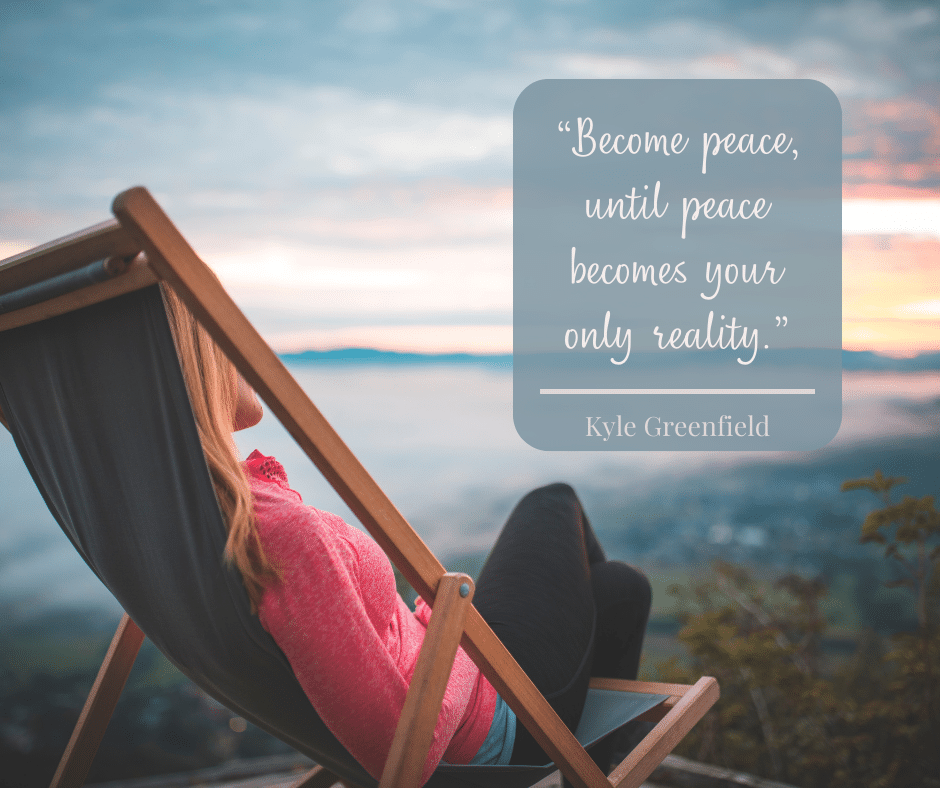
Tips to Let Go and Move On In Peace
It takes courage to let go of your past, but it is the only way to find peace.
Herman Hesee
Acknowledge Past Experiences
The first step toward finding peace with your past is acknowledging it. We all have a history, filled with both joyous moments and challenges.
Trying to suppress or avoid past memories only fuels negative thoughts. Instead, consider using mindfulness as a tool to confront your past without judgment. Allow yourself to remember the experiences, even the difficult ones, and observe how they make you feel.
Practice Mindful Reflection
Mindful reflection is a practice that encourages you to explore your past experiences in a balanced and non-judgmental way. It’s not about dwelling on the past but rather about mindfully examining it. Here are some steps to get started:
- Set Aside Quiet Time: Find a quiet and comfortable space where you won’t be interrupted.
- Focus on Your Breath: Begin by taking a few deep breaths to center yourself in the present moment.
- Recall Past Events: Bring to mind a past experience that you’d like to reflect on.
- Observe Your Feelings: As you think about the past, notice any emotions that arise. Do you feel sadness, anger, or regret?
- Practice Non-Judgment: Avoid judging yourself for past actions or decisions. Instead, observe your feelings with kindness and compassion.
- Release and Let Go: When you’re ready, gently release the past and return your focus to the present moment.
Embrace Self-Compassion
One of the keys to finding peace with your past is self-compassion. Treat yourself with the same kindness and understanding that you would offer to a dear friend. Meditation can be a powerful tool for cultivating self-compassion.
Try this self-compassion meditation:
- Find a comfortable seated position or lie down.
- Close your eyes and take a few deep breaths.
- Repeat the following phrases silently or aloud: “May I be kind to myself. May I forgive myself. May I let go of the past.”
- Continue to repeat these phrases, focusing on generating feelings of self-compassion.
Let Go of Regrets
Regrets can be heavy burdens to carry. Mindfulness and meditation can help you release these regrets and free yourself from their grip. Here’s a simple exercise:
- Find a quiet space and sit comfortably.
- Close your eyes and take a few deep breaths.
- Visualize your regret as an object, perhaps a heavy stone.
- Imagine holding this object in your hands.
- As you exhale, imagine letting go of the object, allowing it to drift away.
- Continue to breathe deeply and release the regret, feeling lighter with each breath.
Create a Positive Mindset
A positive mindset is closely linked to finding peace with your past. Cultivating gratitude is a powerful way to shift your focus from the past to the present. Try these gratitude exercises:
- Gratitude Journal: Dedicate a few minutes each day to write down things you’re grateful for. It could be as simple as a warm cup of tea or a kind gesture from a friend.
- Three Blessings: Reflect on three good things that happened today, no matter how small or significant.
- Gratitude Walk: Take a walk in nature and focus on the beauty around you. Express gratitude for the natural world.
Live Mindfully in the Present
Ultimately, finding peace with your past is about living mindfully in the present. Mindfulness can help you stay grounded in the here and now, rather than getting caught up in regrets or worries about the past. Practice mindfulness through techniques like meditation, deep breathing, or simply being fully present in your daily activities.
As you embrace mindfulness and meditation, you’ll discover that peace with your past is attainable. The journey may not be without its challenges, but with self-compassion and a positive mindset, you can find the serenity you seek.
Next Steps –> Where To Go From Here

Letting go of the past and moving on in peace is not always easy, but with practice it absolutely is possible for you. Our mission at The Joy Within is to help you with that, in any way that we can.
When you’re ready to start applying the tips we’ve just outlined, you might check out the following resources.
- Browse our Online Meditation Courses
- Try These Simple Breath Exercises
- Listen to The Joy Within’s Podcast
- Signup for a Free Trial of The Joy Within.
We offer a simple path to help you quiet the mind and eliminate negative thoughts, by following your natural, inner joy.

